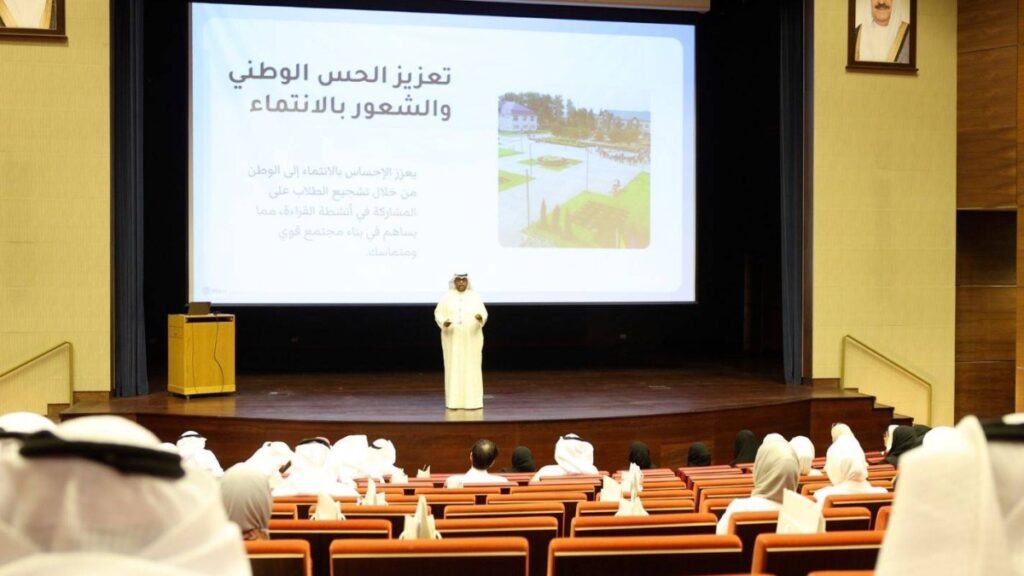KUWAIT: The coordinating committee for the Arab Reading Challenge in Kuwait held its inaugural meeting on Wednesday at the Ministry of Education theater to discuss preparations for the tenth edition of the competition in Dubai. In a press statement, the Ministry of Education said Abdullah Al-Barrak, general coordinator of the Arab Reading Challenge in Kuwait, confirmed that the meeting brought together a select group of teachers, department heads, and supervisors involved in the initiative to explore strategies for encouraging student participation and fostering a culture of reading.
Al-Barrak noted that the Kuwaiti committee was formed under the direct guidance of Minister of Education Jalal Al-Tabtabaei, emphasizing the initiative’s role in nurturing a generation of students aware of the educational and intellectual benefits of reading. The meeting featured a presentation on the challenge’s mission to spark a renaissance in Arabic reading, as well as a review of its vision to instill a lasting love of reading among students.

The session also included an explanation of the participation guide, the initiative’s objectives, the organizational structure of the Kuwaiti Reading Challenge team, the elimination process, and the judging system for the student category. Afrah Al-Mutawtah, library supervisor in the Capital Educational District and recipient of the “Distinguished Supervisor” title in the eighth season of the Challenge in Dubai, shared her experiences and highlighted successful practices that contributed to her recognition.
The Arab Reading Challenge in Kuwait, organized annually by the Ministry of Education in partnership with the Mohammed bin Rashid Al Maktoum Global Initiatives Foundation, aims to encourage students to read Arabic books, enhance language skills and develop critical thinking. Thousands of students across grade levels participate by reading and summarizing 50 Arabic books outside the school curriculum over the course of the year.
The initiative seeks to raise awareness of reading as a daily habit, strengthen proficiency in the Arabic language, cultivate critical thinking, and foster national pride. The Ministry oversees the program’s activities across schools, conducts local qualifying rounds to select Kuwait’s representatives, and honors the winning students for their achievements. — KUNA

